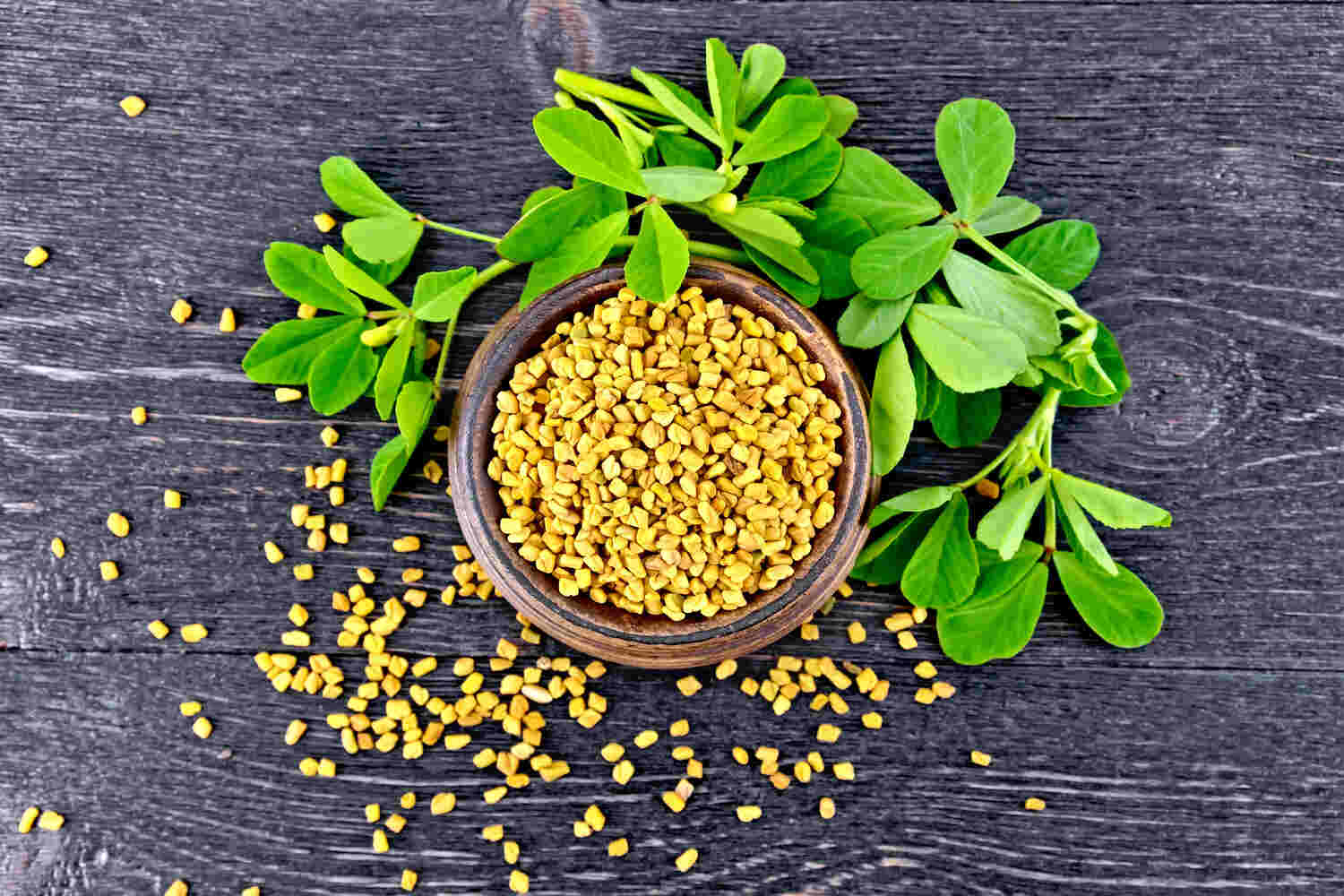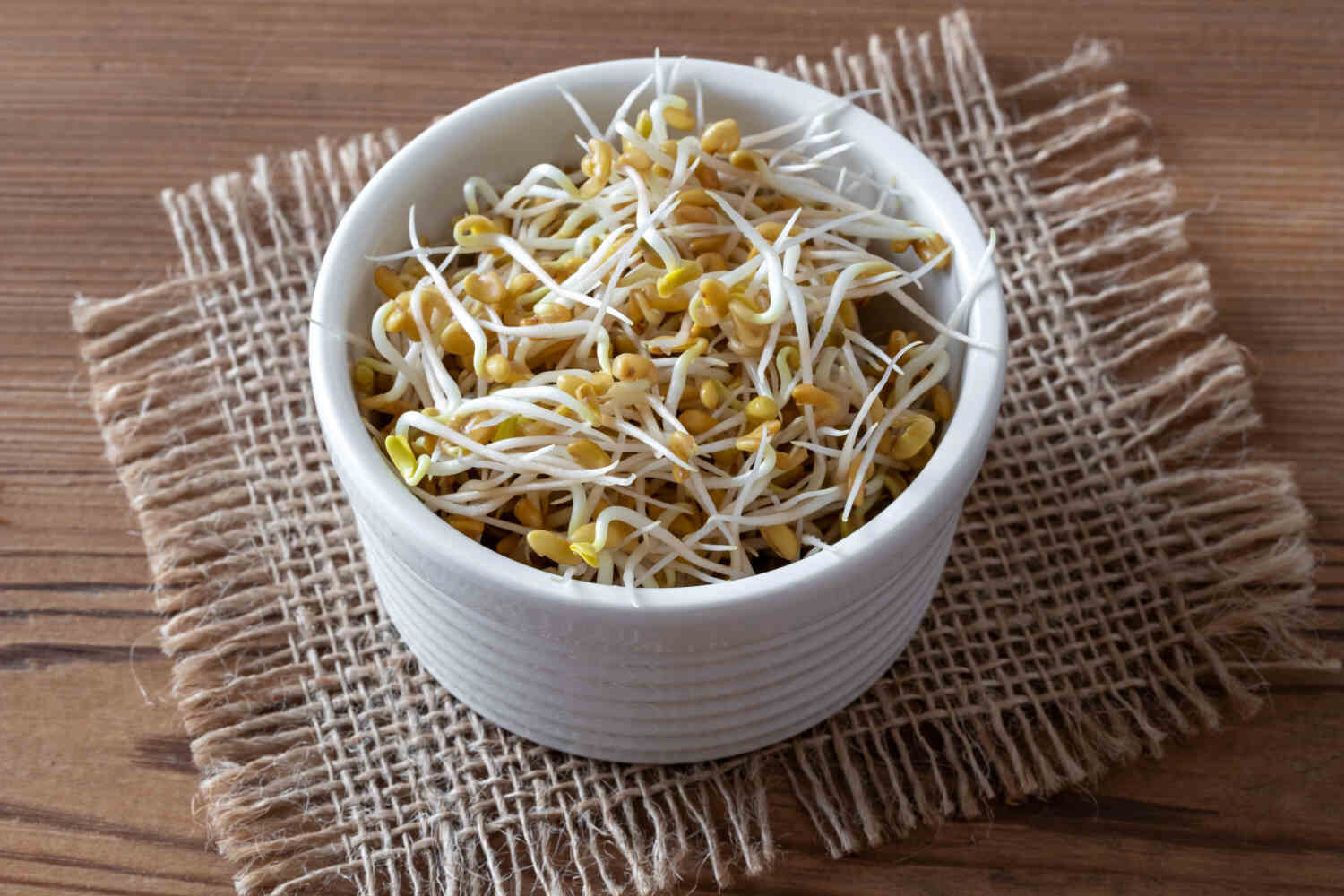
Fenugreek is seeking attention in the field of herbal treatments and supplements because of its hidden reasons for enhancing fertility and reproductive health. It is one of the important ingredients in Indian kitchens and also has numerous health benefits. But, is fenugreek safe while trying to conceive?
However, couples who consider including such herbs in their routine must understand the potential effects of them before they go ahead. This article sheds some light on the safety of consuming fenugreek seeds when trying to conceive.
In This Article
- What Is Fenugreek?
- Is It Safe To Take Fenugreek While Trying To Conceive?
- Who Should Not Have Fenugreek While Trying To Conceive?
- How To Use Fenugreek Seeds To Conceive?
- Benefits Of Fenugreek While Trying To Conceive
- Side Effects Of Fenugreek While Trying To Conceive
- Precautions To Consider When Having Fenugreek
- FAQ’s
What Is Fenugreek?
The fenugreek plant grows at a height of two to three feet with small, white flowers, green leaves, and pods with small, golden-brown seeds inside. For decades, fenugreek has been used in Chinese and other medicine to treat different problems, including diseases. It is also an ingredient that is included in ample of products, including shampoos for the benefits it provides.
It is an Indian household seasoning. Due to its nutritious value and somewhat sweet, nutty flavor, the seeds, and powder are frequently used in many Indian recipes. Fenugreek contains significant amounts of fiber, protein, carbohydrates, fat, iron, manganese, and magnesium.
Is It Safe To Take Fenugreek While Trying To Conceive?

Taking safety measures while eating drugs such as herbs and herbal supplements during conception is essential. While fenugreek is generally deemed safe for culinary use and has been used for a variety of purposes for centuries, there has been little scientific study particularly addressing its safety during conception.
Fenugreek is usually regarded as safe to consume in moderation during conception as it may help regulate estrogen levels, support ovulation, and improve overall menstrual cycle regularity. This can also help in improving semen quality, including sperm count, motility, and morphology in males.
However, it is always better to speak to your doctor to ensure the safety of such herbal supplements while trying to conceive.
Who Should Not Have Fenugreek While Trying To Conceive?
While fenugreek is usually regarded as safe for use, certain people should exercise caution or avoid taking it while attempting to conceive.
- Women allergic to fenugreek or any other species of the Fabaceae family (such as chickpeas, peanuts, or soybeans) should abstain from it.
- Individuals with specific medical conditions like diabetes, hypoglycemia, clotting disorders, hormone-sensitive conditions, or are taking blood-thinning medications should consult with healthcare before consuming fenugreek.
- If you are undergoing any medical treatments, including fertility treatments or hormone therapies, you should contact your healthcare professional before taking fenugreek.
It’s always advisable to obtain tailored counsel from a healthcare practitioner or fertility specialist who can examine your unique health status and give information on whether fenugreek is appropriate for you while trying to conceive.
How To Use Fenugreek Seeds To Conceive?

There are numerous ways to include fenugreek seeds into your diet while trying to conceive. Here are a few:
1. Methi Seed Infusion
Soak fenugreek seeds in water overnight to make an infusion. Drink the water on an empty stomach. This can help with reproductive health, while outcomes may fluctuate depending on the person.
2. Sprouts of Fenugreek
Soak fenugreek seeds in water and let them sprout after draining. For extra nutrition, use these sprouts in salads, sandwiches, or stir-fries.
3. Fenugreek Supplements
These supplements come in a variety of forms including capsules, powders, or liquid extracts, and can deliver a concentrated amount of the plant’s elements.
However, before beginning any new supplement regimen, especially while attempting to conceive, it’s crucial to speak with a medical expert or fertility specialist.
Adapting a healthy lifestyle is as vital as consuming fenugreek. Maintain a balanced diet, exercise regularly, manage stress, prioritize sleep, and abstain from smoking and excessive alcohol intake to have a successful conception.
Benefits Of Fenugreek While Trying To Conceive
While fenugreek is often considered to provide fertility and conception advantages, it is crucial to remember that scientific research in this area needs to be more extensive and conclusive. Here are the advantages of fenugreek while trying to conceive
1. Promotes Hormonal Balance
Fenugreek can help with hormonal balance. It has estrogen-like features that might help control the period’s cycle and promote reproductive health.
2. Improves Sex Drive
Fenugreek may be helpful for women to increase their stamina for sex by increasing the level of estrogen hormone.
3. Improved Reproductive Parameters
According to some research, fenugreek may help enhance key fertility factors in both men and women, including sperm count, motility, and quality.
Fenugreek has antioxidants, which can help guard reproductive cells from oxidative stress and possible loss.
Side Effects Of Fenugreek While Trying To Conceive

Fenugreek seeds are diuretics and are recommended to those who want to lose weight or decrease bloating. But, it has potential side effects when taken in excess when planning to conceive.
Fenugreek seeds have significant concentrations of phytoestrogens which can contract your uterine walls and lining resulting in compression which is harmful while conceiving time.
Moreover, when consumed in huge amounts can stimulate the menstruation cycle which is not beneficial for the conceiving process.
Precautions To Consider When Having Fenugreek
Because of a lack of scientific evidence, the safety of fenugreek during conceiving is not confirmed. Excess fenugreek use may alter the hormonal balance and result in difficulties, including miscarriage. The time and size of seed intake are critical factors in discovering its safety. Consult a healthcare provider when taking fenugreek at the time of conceiving.
The safety and efficacy of eating fenugreek while attempting to conceive have yet to be shown. Although the preliminary study shows potential advantages, care and moderation are suggested. Individual situations and safety factors should be discussed with a healthcare practitioner when you are trying to conceive.
FAQ’s
1. Is Fenugreek Good For Ovulation?
While fenugreek is said to help with ovulation, research on its exact benefits is scarce. Fenugreek includes chemicals that may aid in regulating ovulation-related hormones. Individual situations and underlying illnesses, however, should be examined, and it is advisable to get tailored guidance from a healthcare practitioner. Fenugreek should not be used as the primary treatment for ovulation problems because other variables might also affect ovulation.
2. Can You Eat Soaked Fenugreek Seeds Daily?
Consuming soaked fenugreek seeds daily while trying to conceive is safe in moderation. Start with a small amount and keep an eye on your body’s response. However, scientists have not conducted enough research on its specific effects during conception. Consult with a healthcare practitioner for personalized advice.
Referral Links
- https://www.masalamonk.com/fenugreek-and-fertility-exploring-the-potential-benefits/#:~:text=Fenugreek%20has%20been%20studied%20for,fenugreek%20may%20indirectly%20support%20fertility.
- https://www.medicinenet.com/what_are_the_benefits_of_fenugreek/article.htm
- https://medicaldarpan.com/indian-foods-to-avoid-while-trying-to-conceive/
- https://www.healthline.com/nutrition/fenugreek#what-it-is
- https://www.masalamonk.com/fenugreek-and-fertility-exploring-the-potential-benefits/

